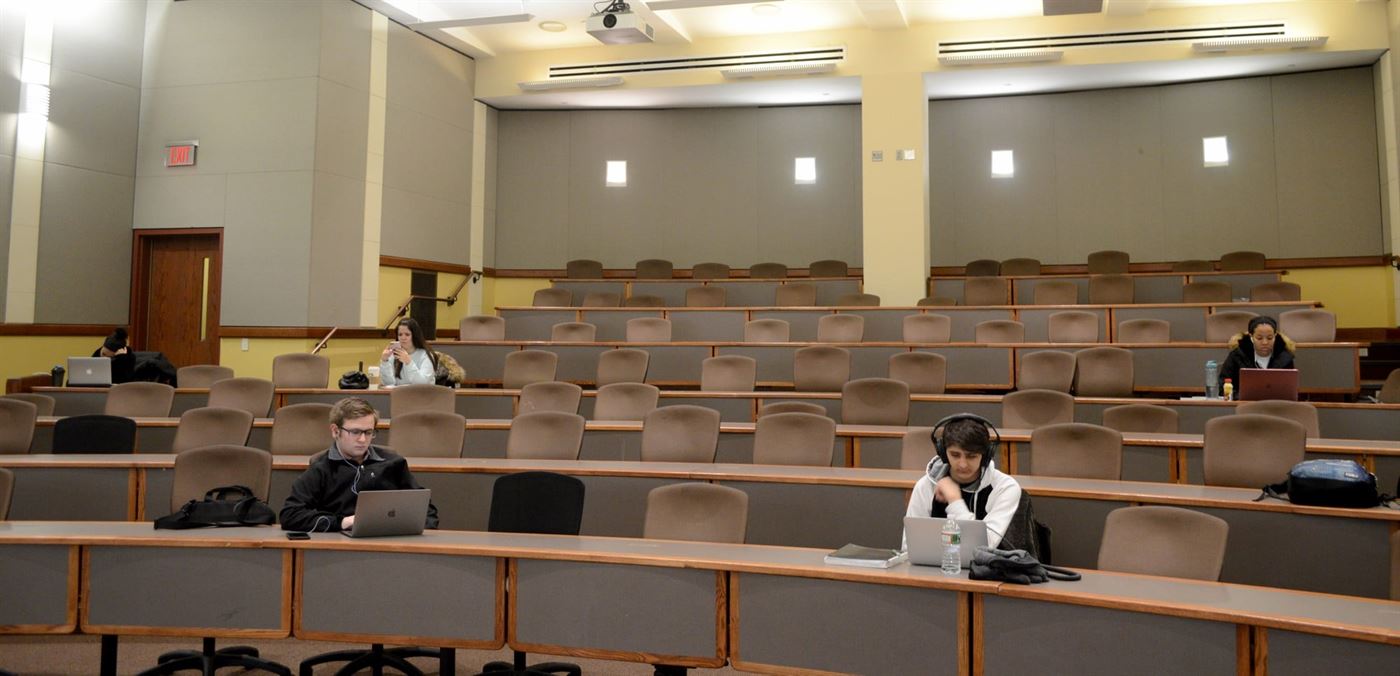Dr. Hugh Curnutt, an associate professor for the School of Communication and Media is relaxed when it comes to attendance. He said it is important for him to treat his students as adults.
“I typically don’t make attendance mandatory,” Curnutt said. “At the same time, however, I also don’t provide students with lecture slides or other missed content, and I very rarely make exceptions for missed quizzes and exams, so it’s in my students’ best interest to attend when possible.”
There are professors like Curnutt who do not take attendance, but others are stricter. The truth is that there is no university-wide attendance policy, and it is up to the discretion of the professor. Some students do not seem to mind, but many have arguments against the strict policy.
School of Communication and Media professor Dr. Vanessa Domine explained her policy on attendance.
“I collect attendance by quizzes,” she said, rather than roll call individual students’ names.
In contrast, marketing professor John E. Cavaliere checks for presence at the start of each class.
“I take attendance every class,” Cavaliere said. “If you come in late, you lose one point off your final grade, and if I have to be here at 8:30 a.m. in the morning then so do you.”
Assistant professor of managing Dr. Melissa Gutworth has a similar policy.
“There are no freebie days and each day of class has attendance points and participation points so if you’re missing class you lose points for both,” Gutworth said. “But even if it’s an excused absence I have them write a paper on what they missed. But I need documentation for that. It shows me that they know what they missed.”
While Provost and Vice President for Academic Affairs Willard Gingerich said that while there is no universal attendance policy, there is an exception.
According to an administration statement, faculty have to take attendance at least once for financial aid to disburse because of the U.S. Department of Education regulations. This relatively new practice by the university is an attempt to combat financial aid fraud.
Students have mixed reactions to strict attendance policies because of varying aspects of going to university.
Some students, like senior justice studies major Michael Rotundo, are all for it.
“They can learn your name and if you’re a good student they can help you out if they can,” Rotundo said.
Psychology and linguistics double major Courtney Vignola disagrees.
“I hate it when if you miss one or two classes your grade gets affected,” Vignola said. “It’s not fair, especially for commuters.”
Senior exercise major Kayla Dixon is adamant that attendance should not be taken.
“It should not matter if I’m physically coming into your class if I’m doing the work,” Dixon said. “It’s not the fact that I’m paying, it’s my time. Why should I be penalized for the times I’ve missed if I’m getting all the work done? Why is it so much of their concern if I’m coming to your lectures or not?”
Dixon said certain attendance policies have affected her grades.
“I missed one yoga class because I had chest pains, so I wrote a report on what I missed,” Dixon said. “And then I missed the last day of class, where nothing was going on, and my grade went from an A to a B-. So all the work I put into the class, figuring out the yoga poses, was for nothing. I’m here to further my education. If you want to drop my grade because of attendance, it’s not reflecting what I’m learning.”
Another senior exercise science major, Tamara Gehy, agreed with Dixon’s sentiments and rose the question, “What about when the professors cancel class?”
“That’s fine, but then if we don’t show up, we’re penalized,” Gehy said.
Gehy continued to reflect on the times when her professor has cancelled class, only to have the teacher’s assistants take attendance and teach the day’s lesson.
Some students like junior business administration major Joey Marrella pay little attention to their individual course’s attendance policies.
“Even if they don’t take attendance, I still try to go as much as I can,” Marrella said, “because I’m paying so much for tuition I’d might as well go.”



